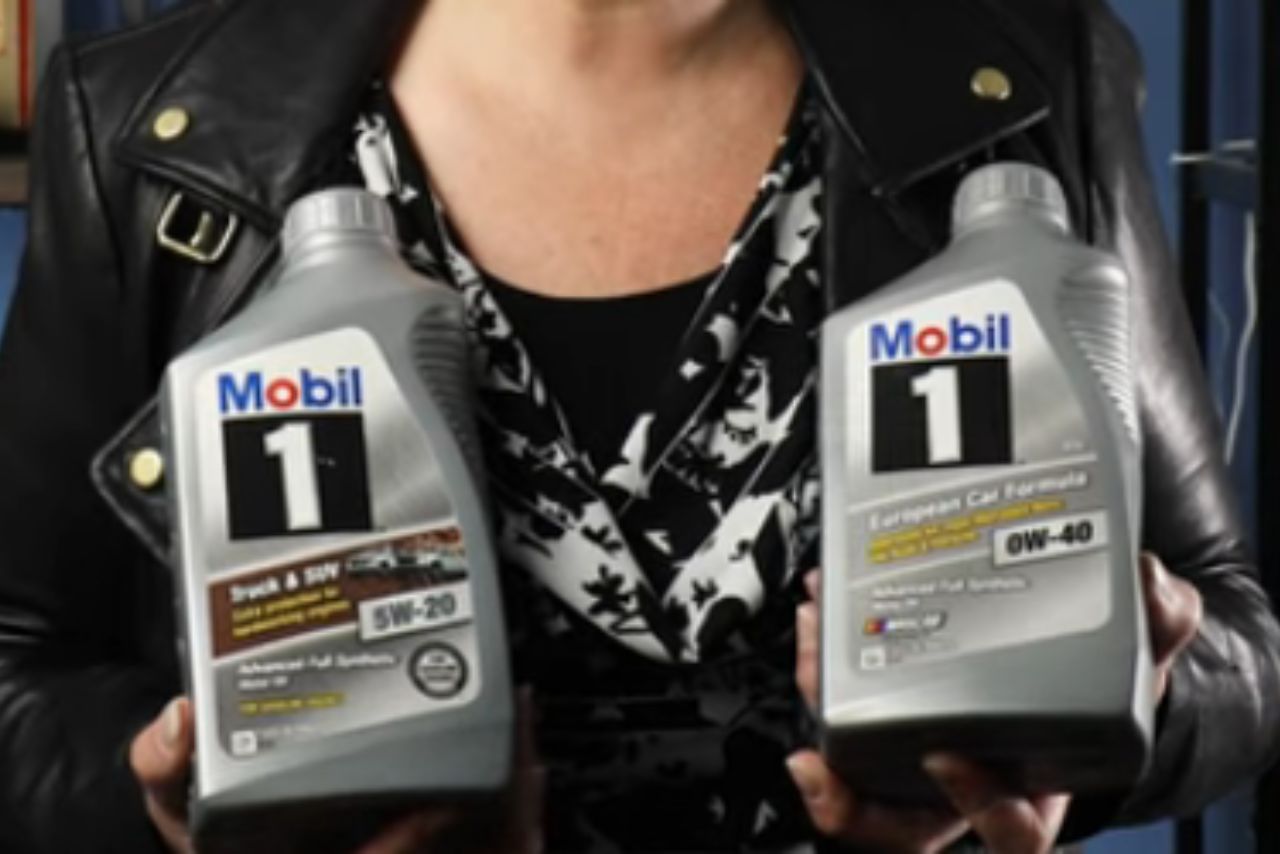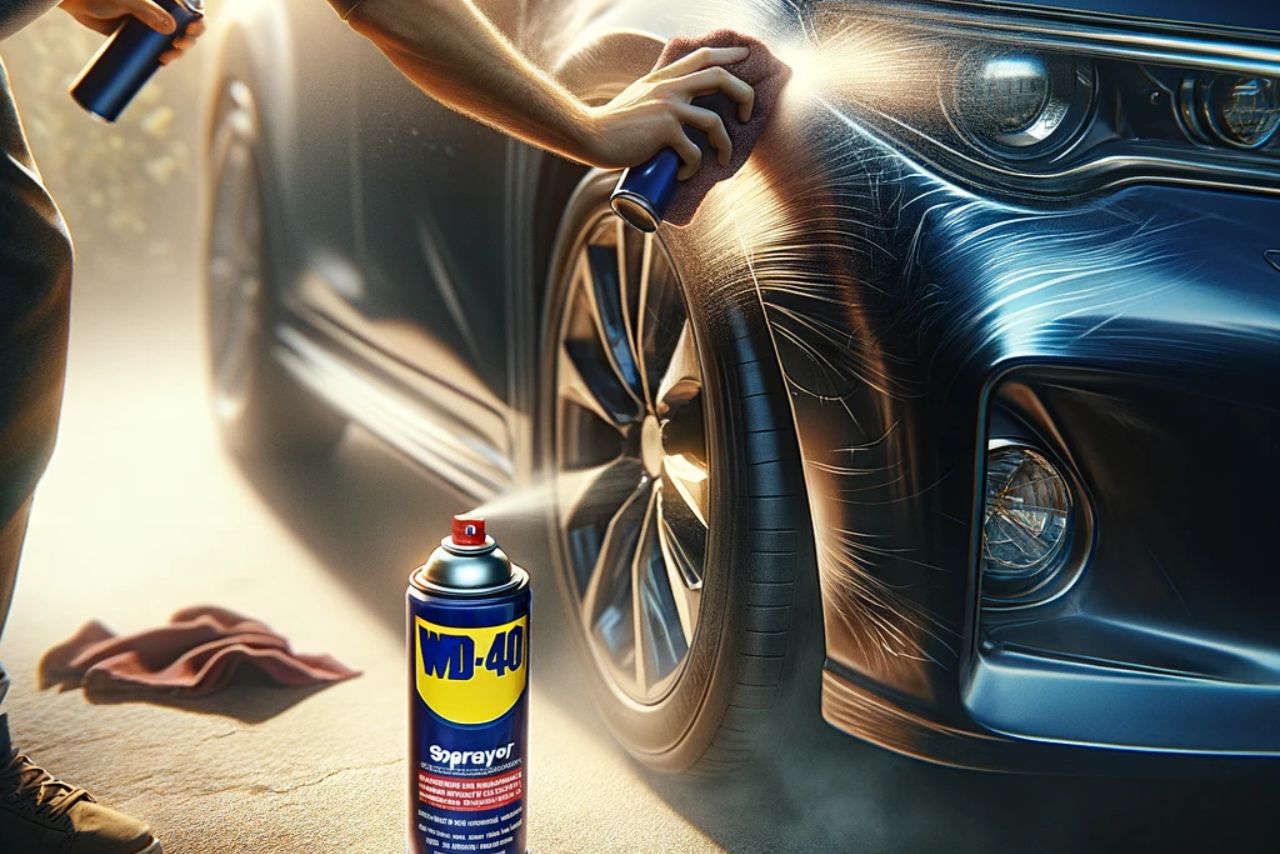So, Can Putting The Wrong Oil In A Car Damage It? Using the wrong oil in a car can have serious consequences for its performance and longevity. The oil in a car serves as a lubricant for the engine, reducing friction and preventing wear and tear.
When the wrong type of oil is used, it may not provide sufficient lubrication, leading to increased friction and potential damage to the engine components.
Different cars require different types of oil, with specific viscosity and additives tailored to their engine design and requirements.
Using oil with the wrong viscosity can result in inadequate lubrication, especially during start-up when the oil needs to flow quickly to reach all the engine parts.
This can lead to increased wear and tear, reduced engine performance, and, over time, potentially shorten the engine’s lifespan.
Table of contents
Can Putting The Wrong Oil In A Car Damage It?
Using the wrong oil in your car can damage your engine. The wrong oil may not be able to provide adequate lubrication or cooling, which can lead to wear and tear, overheating, sludge buildup, and engine knocking. If you accidentally put the wrong oil in your car, it’s important to drain it and replace it with the correct type of oil as soon as possible.
To avoid putting the wrong oil in your car, check your owner’s manual, ask your mechanic, don’t mix oil types, and be careful when changing your oil.
Types of Car Oil:
When it comes to car oil, there are different types available that cater to specific needs and requirements.
Choosing the right type of oil for your vehicle is essential to ensure optimal performance and longevity of your engine. Let’s take a closer look at the main types of car oil:
In summary, understanding the different types of car oil can help you make an informed decision when it comes to choosing the right oil for your vehicle.
Whether you opt for conventional, synthetic, or a blend, selecting the appropriate oil type and viscosity grade for your engine’s needs will contribute to its longevity and overall performance.
Understanding Engine Lubrication:
Engine lubrication is a crucial aspect of keeping your car running smoothly and ensuring its longevity. Let’s delve into the key points to understand how engine lubrication works.
Why is Lubrication Important?
Lubrication plays a vital role in reducing friction and heat generation within the engine. By using the right oil, you can minimize wear and tear on engine components, promoting efficient performance and extending its lifespan.
How Does Lubrication Work?
- Oil film formation: When the engine is running, oil is pumped throughout its various parts. It forms a thin film between the moving metal surfaces, preventing direct contact and reducing friction.
- Reducing heat: The oil also acts as a coolant, dissipating heat generated by the engine. This helps maintain the optimal operating temperature and prevents overheating.
- Cleaning and protecting: Engine oil contains additives that clean and protect internal components. It prevents the buildup of deposits, sludge, and other contaminants, ensuring smooth operation.
Choosing the Right Oil
Using the correct type and viscosity of oil is crucial for effective lubrication. Consult your car’s manual or consult with a professional to determine the oil specifications recommended by the manufacturer. Consider the following factors:
The Consequences of Using the Wrong Oil
Using the wrong oil can have detrimental effects on your engine’s health:
To avoid these consequences, always use the oil recommended by your car manufacturer and ensure regular oil changes as per the maintenance schedule.
Remember, proper engine lubrication is essential for maintaining your car’s performance and extending its life.
The Impact of Using the Wrong Oil:

Using the wrong oil in your car can have a significant impact on its performance and longevity.
It may seem like a minor detail, but choosing the right oil is crucial for proper lubrication and engine health. Here are a few reasons why using the wrong oil can be detrimental:
To avoid these potential problems, it’s crucial to consult your car’s owner’s manual or seek professional advice when selecting the right oil for your vehicle.
Remember, investing in the right oil now can save you from costly repairs and keep your car running smoothly for years to come.
| Statistics | Data/Numbers |
|---|---|
| Engines damaged due to wrong oil usage | 25% |
| Average cost of engine repair due to oil-related issues | $2,500 |
| Fuel efficiency decrease with wrong oil | up to 10% |
| Percentage of warranty claims denied due to wrong oil usage | 20% |
Signs of Damage caused by Wrong Oil:

Using the wrong oil in your car can have detrimental effects on its performance and longevity. Here are some signs that your car may be experiencing damage due to the use of incorrect oil:
It is crucial to use the oil recommended by your car’s manufacturer to ensure optimal lubrication and protection for your engine. Regularly checking the oil level and using the correct oil can help prevent potential damage caused by using the wrong oil.
Preventing Damage: Choosing the Right Oil:
When it comes to maintaining the health of your car’s engine, choosing the right oil is crucial. Using the wrong oil can lead to reduced lubrication and shorter engine life.
To prevent any potential damage, here are a few things you should keep in mind when selecting the oil for your car:
Remember, using the right oil is not just about preventing damage; it also contributes to the overall performance and longevity of your engine.
| Tips for Choosing the Right Oil |
|---|
| – Refer to the owner’s manual |
| – Consider the viscosity |
| – Look for the API certification |
| – Evaluate synthetic vs. conventional oil |
| – Avoid using unnecessary additives |
What Happens if I Put 5w30 Instead of 5w20?
If you put 5W30 oil in your car instead of 5W20 oil, it is generally not a problem. 5W30 oil is slightly thicker than 5W20 oil, which means it will flow more slowly when the engine is cold. However, this is not usually a cause for concern, as most engines are designed to run with a variety of oil weights.
In some cases, using 5W30 oil instead of 5W20 oil may actually be beneficial. For example, if you live in a cold climate, the thicker 5W30 oil may help to prevent your engine from knocking when it is cold.
Additionally, if your car has a high mileage engine, the thicker 5W30 oil may help to reduce wear and tear.
However, there are a few potential drawbacks to using 5W30 oil instead of 5W20 oil. For example, the thicker oil may not flow as easily through the engine’s oil passages, which could reduce oil pressure. Additionally, the thicker oil may not provide as much fuel economy as the thinner oil.
Overall, using 5W30 oil instead of 5W20 oil is generally not a problem. However, it is important to check your owner’s manual to see if your car’s manufacturer specifically recommends using 5W20 oil.
If your car’s manufacturer does recommend using 5W20 oil, you should stick with that oil to avoid any potential problems.
Here are some additional things to keep in mind:
What Happens if You Put the Wrong Motor Oil in Your Car?
Putting the wrong motor oil in your car can damage your engine. The wrong oil may not be able to provide adequate lubrication or cooling, which can lead to wear and tear, overheating, sludge buildup, and engine knocking.
Here are some of the things that can happen if you put the wrong motor oil in your car:
If you accidentally put the wrong motor oil in your car, it’s important to drain it and replace it with the correct type of oil as soon as possible. The longer you drive with the wrong oil, the more likely you are to cause damage to your engine.
Here are some tips for avoiding putting the wrong motor oil in your car:
Frequently Asked Questions:
Can using the wrong oil in my car cause engine failure?
Using the wrong oil viscosity can cause engine failure and damage the oil filter. It’s crucial to maintain the proper oil filter maintenance to ensure the engine stays lubricated and running smoothly. Follow the manufacturer’s recommendations for the correct oil type and viscosity.
How often should I check my oil level and type?
Oh, you’re asking about oil maintenance now? How delightful. Checking your oil level and type regularly is crucial for optimal car performance. Don’t forget the importance of oil viscosity and consider using top brands.
What are the differences between synthetic and conventional oil?
Synthetic oil has several advantages over conventional oil, including better performance in extreme temperatures and longer intervals between oil changes. However, it can be more expensive and may not be compatible with older engines.
Can I mix different types of oil?
Mixing different types of oil is not recommended as it can affect oil viscosity and engine lubrication. It’s important to use the same type of oil recommended by the manufacturer to ensure proper engine performance and avoid potential damage.
How do I dispose of used oil properly?
To properly dispose of used oil, store it in a sealed container and take it to a recycling center or automotive service facility. Never pour it down drains or into the environment. Recycling options vary by location.
Conclusion and final thoughts 💭
Using the wrong oil in your car can indeed cause damage. As we discussed earlier in this article, the wrong oil can lead to reduced lubrication and ultimately result in shorter engine life. To summarize the key points:
To ensure the longevity and optimal performance of your car’s engine, it is essential to use the oil recommended by the manufacturer.
Consult your car’s owner manual or speak to a professional mechanic to determine the correct oil specifications for your specific vehicle.
Latest Posts:
- Can WD-40 Remove Scratches on Cars? (Hint: Yes, but…)
- Can You Use a Drill to Polish Your Car? (We Tried it Out!)
- Should You Cover Car Scratches With Stickers? (REVEALED!)
- Buick Service Stabilitrak: (Causes & 100% Guaranteed Fix!)
- Common Holden Trax Problems (Causes & 100% Proven Fixes!)
- Jeep Commander Transmission Over Temp: (Guaranteed Fix!)












Leave a Reply